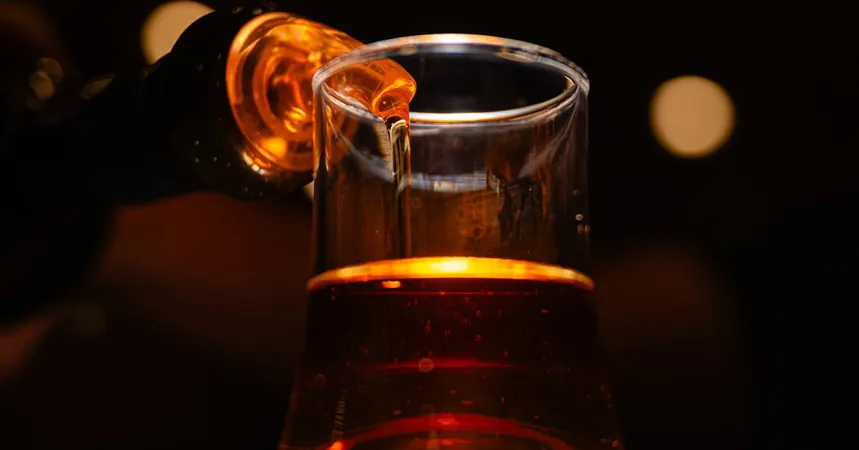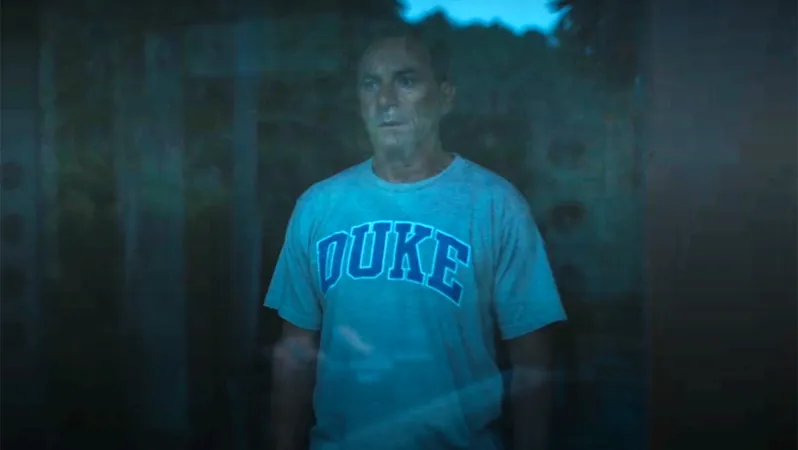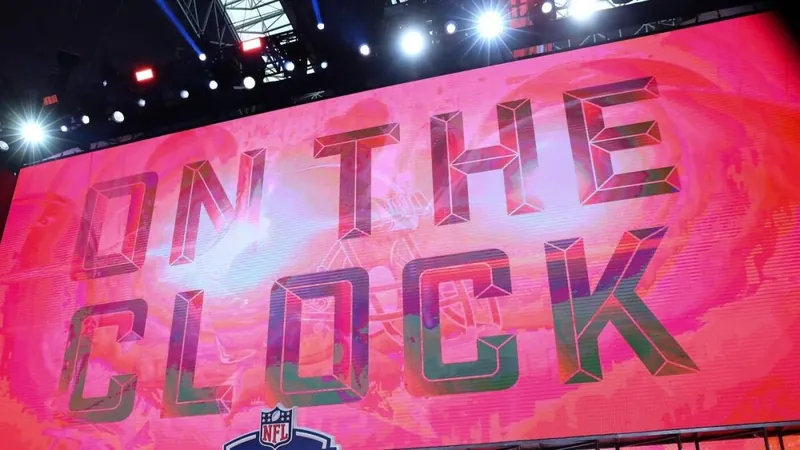
American Whiskey Distillers Gear Up for Trump’s Expected Second Trade War: How It Could Affect Your Favorite Bourbon!
2025-04-08
Author: Kai
American whiskey producers are on edge as they prepare for the possibility of a second trade war under the Trump administration, which could bring devastating consequences to the already struggling industry. Farmers like Ryan Bivens from Hodgenville, Kentucky—a region famous for its bourbon—are feeling the heat. After operating at a loss last year due to soaring production costs driven by persistent inflation, Bivens worries that Trump's new tariffs will only exacerbate the situation.
With tariffs looming, industries across the U.S. brace for a spike in the cost of essential imports and face potential restrictions on their exports. America's whiskey, primarily bourbon, has become a prime target for retaliatory tariffs imposed by foreign nations. This vicious cycle not only impacts large distillers but also sends shockwaves throughout the entire supply chain, affecting small producers, barrel manufacturers, and farmers alike.
As Trump positions his trade policies to benefit sectors like steel and aluminum, many in the whiskey business—who have historically backed his administration—are left wondering if their livelihoods are collateral damage in a larger political game. Bivens highlighted his concerns, stating, “This is coming at a pretty tough time for us right now. We can’t afford this to go on for long.”
The consequences of Trump’s proposals are already manifesting, with the European Union threatening a staggering 50% tariff on all American whiskey and Canada implementing a 25% tariff. Iconic brands such as Jack Daniel’s have even been pulled from shelves in parts of Canada. In retaliation, President Trump has suggested he may impose 200% tariffs on European wines, escalating tensions even further.
Chris Swonger, president of the Distilled Spirits Council of the United States, echoed the growing anxiety within the industry, arguing for the complete removal of tariffs that harm American distillers without reason. Kentucky's own Senator Mitch McConnell expressed his concerns as well, acknowledging that the state produces 95% of the world’s bourbon.
These trade disputes are not just affecting the giants of the industry; the ripple effects extend down to small distilleries and businesses that support them. The market has been anything but stable in recent years. The whiskey industry faced challenges after Trump's first trade war, saw a consumption boom during the pandemic, and now faces competition from consumers leaning towards healthier options and alternatives like cannabis. In 2022, the United States exported over $1.3 billion of whiskey, underscoring the industry's importance to the economy.
Worse yet, companies like Brown-Forman, known for Jack Daniel’s and Woodford Reserve, are already reacting by shutting down barrel-making operations and laying off 12% of their workforce. Bartenders across Kentucky have been warned of impending price increases due to curtailed exports of high-cost whiskey.
As distillers anticipate a decline in exports, they are adopting more cautious production approaches, which in turn endangers local suppliers like loggers and mills who depend on their business. Ron Boswell, a local industry expert, lamented the potential fallout: “If there’s a draconian tariff placed on American whiskey, the ripple effects are much more than people would expect.”
But the challenges don’t stop there—companies that produce stills, the massive distilling apparatus typically made from copper, are also bracing for potential price hikes. Earlier this year, Trump initiated an investigation into copper imports in the name of national security, and if tariffs are implemented, expect the already pricey stills—which can go for over $250,000—to become even more expensive.
In a world where the fate of your favorite bourbon might waver under the weight of trade policies, one thing remains clear: the American whiskey industry is at a crossroads, and the implications for consumers and producers alike could be profound. Stay tuned to see how this develops and whether your beloved bourbon will soon come with a price hike!





 Brasil (PT)
Brasil (PT)
 Canada (EN)
Canada (EN)
 Chile (ES)
Chile (ES)
 Česko (CS)
Česko (CS)
 대한민국 (KO)
대한민국 (KO)
 España (ES)
España (ES)
 France (FR)
France (FR)
 Hong Kong (EN)
Hong Kong (EN)
 Italia (IT)
Italia (IT)
 日本 (JA)
日本 (JA)
 Magyarország (HU)
Magyarország (HU)
 Norge (NO)
Norge (NO)
 Polska (PL)
Polska (PL)
 Schweiz (DE)
Schweiz (DE)
 Singapore (EN)
Singapore (EN)
 Sverige (SV)
Sverige (SV)
 Suomi (FI)
Suomi (FI)
 Türkiye (TR)
Türkiye (TR)
 الإمارات العربية المتحدة (AR)
الإمارات العربية المتحدة (AR)